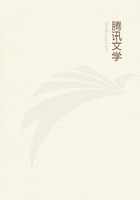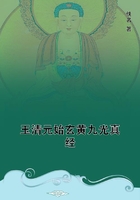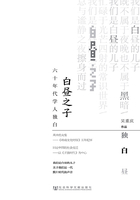Burrough entitled his reply, "The Gospel of Peace, contended for in the Spirit of Meekness and Love against the secret opposition of John Bunyan, a professed minister in Bedfordshire." His opening words, too characteristic of the entire treatise, display but little of the meekness professed. "How long, ye crafty fowlers, will ye prey upon the innocent? How long shall the righteous be a prey to your teeth, ye subtle foxes! Your dens are in darkness, and your mischief is hatched upon your beds of secret whoredoms?"Of John Burton and the others who recommended Bunyan's treatise, he says, "They have joined themselves with the broken army of Magog, and have showed themselves in the defence of the dragon against the Lamb in the day of war betwixt them." We may well echo Dr. Brown's wish that "these two good men could have had a little free and friendly talk face to face. There would probably have been better understanding, and fewer hard words, for they were really not so far apart as they thought. Bunyan believed in the inward light, and Burrough surely accepted an objective Christ. But failing to see each other's exact point of view, Burrough thunders at Bunyan, and Bunyan swiftly returns the shot."The rapidity of Bunyan's literary work is amazing, especially when we take his antecedents into account. Within a few weeks he published his rejoinder to Friend Burrough, under the title of "AVindication of Gospel Truths Opened." In this work, which appeared in 1667, Bunyan repays Burrough in his own coin, styling him "a proved enemy to the truth," a "grossly railing Rabshakeh, who breaks out with a taunt and a jeer," is very "censorious and utters many words without knowledge." In vigorous, nervous language, which does not spare his opponent, he defends himself from Burrough's charges, and proves that the Quakers are "deceivers.""As for you thinking that to drink water, and wear no hatbands is not walking after your own lusts, I say that whatsoever man do make a religion out of, having no warrant for it in Scripture, is but walking after their own lusts, and not after the Spirit of God."Burrough had most unwarrantably stigmatized Bunyan as one of "the false prophets, who love the wages of unrighteousness, and through covetousness make merchandise of souls." Bunyan calmly replies, "Friend, dost thou speak this as from thy own knowledge, or did any other tell thee so? However that spirit that led thee out this way is a lying spirit. For though I be poor and of no repute in the world as to outward things, yet through grace I have learned by the example of the Apostle to preach the truth, and also to work with my hands both for mine own living, and for those that are with me, when I have opportunity. And I trust that the Lord Jesus who bath helped me to reject the wages of unrighteousness hitherto, will also help me still so that I shall distribute that which God hath given me freely, and not for filthy lucre's sake." The fruitfulness of his ministry which Burrough had called in question, charging him with having "run before he was sent," he refuses to discuss. Bunyan says, "I shall leave it to be taken notice of by the people of God and the country where I dwell, who will testify the contrary for me, setting aside the carnal ministry with their retinue who are so mad against me as thyself."In his third book, published in 1658, at "the King's Head, in the Old Bailey," a few days before Oliver Cromwell's death, Bunyan left the thorny domain of polemics, for that of Christian exhortation, in which his chief work was to be done. This work was an exposition of the parable of "the Rich Man and Lazarus," bearing the horror-striking title, "A Few Sighs from Hell, or the Groans of a Damned Soul." In this work, as its title would suggest, Bunyan, accepting the literal accuracy of the parable as a description of the realities of the world beyond the grave, gives full scope to his vivid imagination in portraying the condition of the lost. It contains some touches of racy humour, especially in the similes, and is written in the nervous homespun English of which he was master. Its popularity is shown by its having gone through nine editions in the author's lifetime. To take an example or two of its style: dealing with the excuses people make for not hearing the Gospel, "O, saith one, I dare not for my master, my brother, my landlord; I shall lose his favour, his house of work, and so decay my calling. O, saith another, I would willingly go in this way but for my father; he chides me and tells me he will not stand my friend when I come to want; I shall never enjoy a pennyworth of his goods; he will disinherit me - And I dare not, saith another, for my husband, for he will be a-railing, and tells me he will turn me out of doors, he will beat me and cut off my legs;" and then turning from the hindered to the hinderers: "Oh, what red lines will there be against all those rich ungodly landlords that so keep under their poor tenants that they dare not go out to hear the word for fear that their rent should be raised or they turned out of their houses. Think on this, you drunken proud rich, and scornful landlords; think on this, you madbrained blasphemous husbands, that are against the godly and chaste conversation of your wives; also you that hold your servants so hard to it that you will not spare them time to hear the Word, unless it will be where and when your lusts will let you." He bids the ungodly consider that "the profits, pleasures, and vanities of the world" will one day "give thee the slip, and leave thee in the sands and the brambles of all that thou hast done." The careless man lies "like the smith's dog at the foot of the anvil, though the fire sparks flee in his face."The rich man remembers how he once despised Lazarus, "scrubbed beggarly Lazarus. What, shall I dishonour my fair sumptuous and gay house with such a scabbed creephedge as he? The Lazaruses are not allowed to warn them of the wrath to come, because they are not gentlemen, because they cannot with Pontius Pilate speak Hebrew, Greek, and Latin. Nay, they must not, shall not, speak to them, and all because of this."The fourth production of Bunyan's pen, his last book before his twelve years of prison life began, is entitled, "The Doctrine of Law and Grace Unfolded." With a somewhat overstrained humility which is hardly worthy of him, he describes himself in the title-page as "that poor contemptible creature John Bunyan, of Bedford."It was given to the world in May, 1659, and issued from the same press in the Old Bailey as his last work. It cannot be said that this is one of Bunyan's most attractive writings. It is as he describes it, "a parcel of plain yet sound, true, and home sayings," in which with that clearness of thought and accuracy of arrangement which belongs to him, and that marvellous acquaintance with Scripture language which he had gained by his constant study of the Bible, he sets forth the two covenants - the covenant of works, and the covenant of Grace - "in their natures, ends, bounds, together with the state and condition of them that are under the one, and of them that are under the other." Dr. Brown describes the book as "marked by a firm grasp of faith and a strong view of the reality of Christ's person and work as the one Priest and Mediator for a sinful world." To quote a passage, "Is there righteousness in Christ? that is mine. Is there perfection in that righteousness? that is mine. Did He bleed for sin? It was for mine. Hath He overcome the law, the devil, and hell? The victory is mine, and I am come forth conqueror, nay, more than a conqueror through Him that hath loved me. . . Lord, show me continually in the light of Thy Spirit, through Thy word, that Jesus that was born in the days of Caesar Augustus, when Mary, a daughter of Judah, went with Joseph to be taxed in Bethlehem, that He is the very Christ. Let me not rest contented without such a faith that is so wrought even by the discovery of His Birth, Crucifying Death, Blood, Resurrection, Ascension, and Second - which is His Personal - Coming again, that the very faith of it may fill my soul with comfort and holiness." Up and down its pages we meet with vivid reminiscences of his own career, of which he can only speak with wonder and thankfulness. In the "Epistle to the Reader," which introduces it, occurs the passage already referred to describing his education. "I never went to school to Aristotle or Plato, but was brought up at my father's house in a very mean condition, among a company of poor countrymen." Of his own religious state before his conversion he thus speaks: "When it pleased the Lord to begin to instruct my soul, He found me one of the black sinners of the world. He found me making a sport of oaths, and also of lies; and many a soul-poisoning meal did I make out of divers lusts, such as drinking, dancing, playing, pleasure with the wicked ones of the world; and so wedded was I to my sins, that thought I to myself, 'Iwill have them though I lose my soul.'" And then, after narrating the struggles he had had with his conscience, the alternations of hope and fear which he passed through, which are more fully described in his "Grace Abounding," he thus vividly depicts the full assurance of faith he had attained to: "I saw through grace that it was the Blood shed on Mount Calvary that did save and redeem sinners, as clearly and as really with the eyes of my soul as ever, methought, I had seen a penny loaf bought with a penny. . . O let the saints know that unless the devil can pluck Christ out of heaven he cannot pull a true believer out of Christ." In a striking passage he shows how, by turning Satan's temptations against himself, Christians may "Get the art as to outrun him in his own shoes, and make his own darts pierce himself." "What! didst thou never learn to outshoot the devil in his own bow, and cut off his head with his own sword as David served Goliath?" The whole treatise is somewhat wearisome, but the pious reader will find much in it for spiritual edification.
同类推荐
热门推荐
白昼之子:六十年代学人独白
本书是作者对自己从20世纪80年代至今的心路历程的一次梳理——“文化热”的狂飙,研习中国古代哲学的耽乐,遭遇流俗文化的偏激,创办刊物的磨砺,身处异国的旷逸,农村田野调查的贴地,还有撰写时评专栏时对民气及文化复兴的期待。















